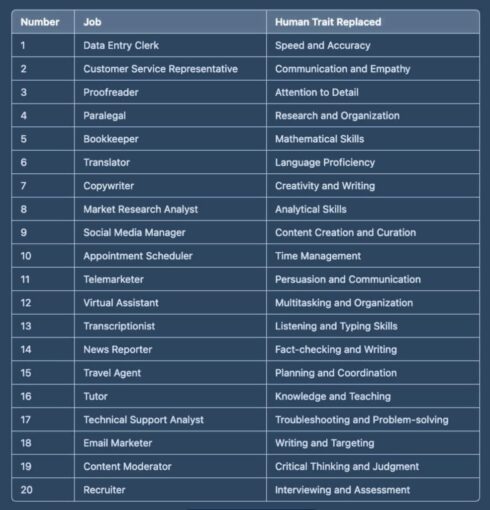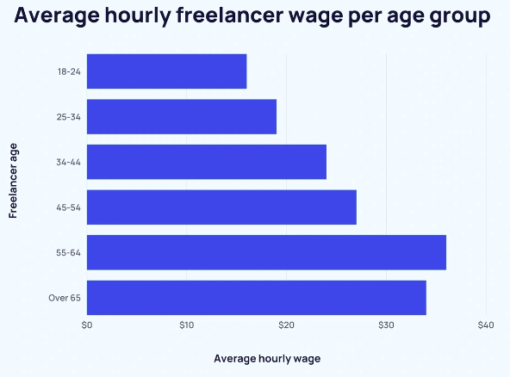
Portfolio Career for Retirement 2.0 And Plan B
Within a mere 3 decades since starting work as a fresh young graduate, the employment landscape has undergone seismic change.
From the types of work, how work is done, manner of contractual engagement to where the work is performed. Technology, social preferences and the pandemic have all contributed to the degree and speed of change.
Long gone are the days of ‘iron rice bowl’ (铁饭碗) where jobs are guaranteed from cradle to grave, as a popular Chinese saying goes. In return for employee loyalty, companies dangle life-long employment culminating in a cushy pension for retirement. Such was the work climate of our parents, just 1 generation ago.
Employment Reality
Around 15% of global workforce or 400 million workers could be displaced by automation between 2016 – 2030, in a study by McKinsey. And in a scenario of the widest adoption of AI in the same study, the share of jobs displaced could be doubled ie, 30% or 800 million jobs.

According to World Bank, 1.57 billion people out of 3.38 billion total workers are freelancers, representing 46.4% of global workforce. This says a lot about the employment climate and reality of changing social norms where work is concerned.
Upwork – online freelance marketplace and a Time100 Most Influential Companies – reported that more than half of freelancers have postgraduate education and globally, nearly 70% of freelancers are 35 years old or younger.
New Way Of Work
This shows that Millennials and Generation Z are more open to freelance work and building a portfolio career compared to older generations. Whether this is due to higher degree of digital savviness, lack of employment opportunity, lifestyle preference or simply a rejection of traditional work status quo, younger generations are better prepared for the change invading the world of work.
Job stability, which is already hanging by the thread, is set to fray even more as the new wave of improved and more powerful AI makes deeper inroads into the work environment. Here are some examples of work that will be affected by the advent of iterative AI:

If you have never heard of ‘portfolio career’, perhaps time to think about and consider it for yourself.
Portfolio Career
A portfolio career is to take on unrelated roles with different organisations, be it on part-time, project or even voluntary basis as a freelancer or while holding on to a main job if bandwidth permits.
These roles reflect other skills, hobbies or passion, representing an extension of a multi-faceted person that we are. Gone are the days of single skill mindset or suppressing other interests and passion.
Portfolio career taps on and showcases the breadth of one’s skills, enabling greater fulfilment and a more complete definition of who you are.

Opportunities abound as more and more organisations increasingly see the value of infusing fresh ideas by tapping on external talent. Such deployment eliminates the burden of taking on employees, hence higher fixed costs. It is also necessitated by the fast pace of technological changes where organisations are forced to innovate to stay competitive.
Motivations For Portfolio Career
In addition to pursuing multiple interests and being in control of one’s destiny, portfolio career adds flavours to life, giving oomph to YOLO. It truly captures the mentality of B.Y.O.B (Be Your Own Boss) where one works for oneself instead of being enslaved to an organisation. An organisation that has no qualms about replacing you at the drop of a hat.
A portfolio career embeds resilience due to its multiple streams of income. It suits people with rich work experience to showcase to potential companies. It also allows for better work-life balance, flexibility, variety and freedom.
Retirement 2.0
A cultural aficionado friend living in central Amsterdam works as a guide at the Tropenmuseum 3 days a week, as well as teaches yoga and cooking classes at her home studio. When Covid hit, her main job as museum guide was affected due to the lock-down and travel restrictions.
Guess what? Her yoga and cooking classes picked up as people tried to find ways to deal with the stress of working from home and to learn to cook as many restaurants were shut.

To meet maximum number of visitors rule, her class size was reduced but her charges increased so she managed to maintain her level of income, including that of the museum gig.
Building a portfolio career is the perfect way to ease into retirement by tapping into a rich work experience and doing something purposeful in line with your hobbies or passion. And the data shows that organisations recognise and remunerate the experience of older candidates.

Because increasingly, instead of stopping work cold turkey, retirement means switching to a lower gear, still be socially engaged, be able to deploy your skills while enjoying more freedom and self-direction. Welcome to Retirement 2.0!
Plan B
If you’re not planning on retiring any time soon, a portfolio career can serve as a good Plan B, especially in the face of upcoming assault on jobs. It is in line with the concept of building multiple streams of income to fortify and protect your livelihood and lifestyle, much like how passive income insulates from job redundancy.
In this era, even brand-name blue-chip companies no longer guarantee long-term employment and are slashing jobs to the tune of: 3M (2,500), Accenture (19,000) , BNY Mellon (1,500), Boeing (2,000), Disney (7,000), Dow (2,000), FedEx (55,000), Ford (3,800) McKinsey (2,000), News Corp (1,250), Philips (6,000), SAP (3,000).
These exclude the massive tech lay-offs already announced or in execution.
Economic cycles are compressed, technology brings on new competitors and chips away at competitive edge, consumers are fickle with too many choices. Within this changing climate, working for 1 employer needs to give way to multiple income streams and working for yourself.
Building a portfolio career is to safeguard and take control of your own destiny. It is a good strategy to prepare for Retirement 2.0 and as Plan B if you’re still far from that stage. Sure, it adds to the demands of your time and focus but it injects fun and the rewards will be more than worth it. If not now, then in time to come for sure.
“AI and automation will replace most blue-collar work and “make” products for minimal marginal cost. Robots and AI will take over the manufacturing, delivery, design and marketing of most goods. AI service robots will do almost all household chores for us.” ~ Kai-Fu Lee, former President of Google China and author of ‘AI 2041’
To freedom and resilience,
Savvy Maverick
(Main image: Brian McGowan, Unsplash)
Disclaimer: The views expressed here are drawn from my own experiences and do not constitute financial advice in any way whatsoever. Nothing published here constitutes an investment recommendation, nor should any data or content be relied upon for any investment activities. It is strongly recommended that independent and thorough research be undertaken before making any financial decisions, including consulting a qualified professional. Data and information cited from credited source are correct at date of publication and will not be updated thereafter.
